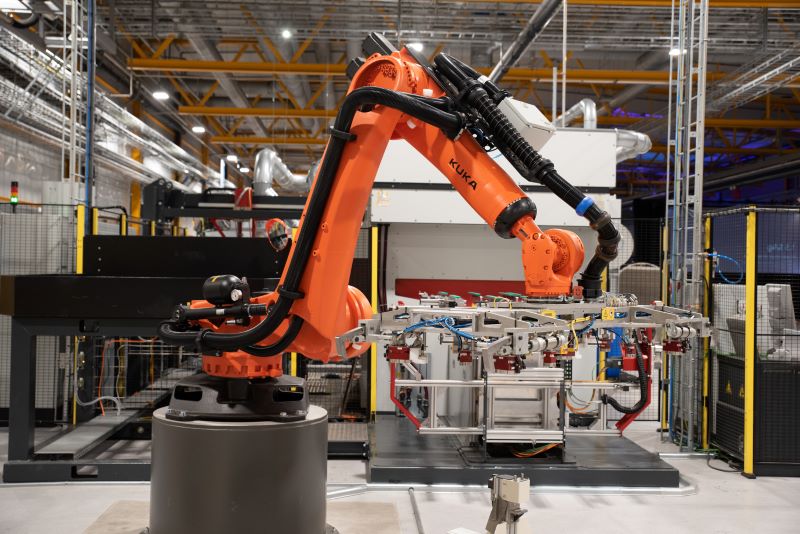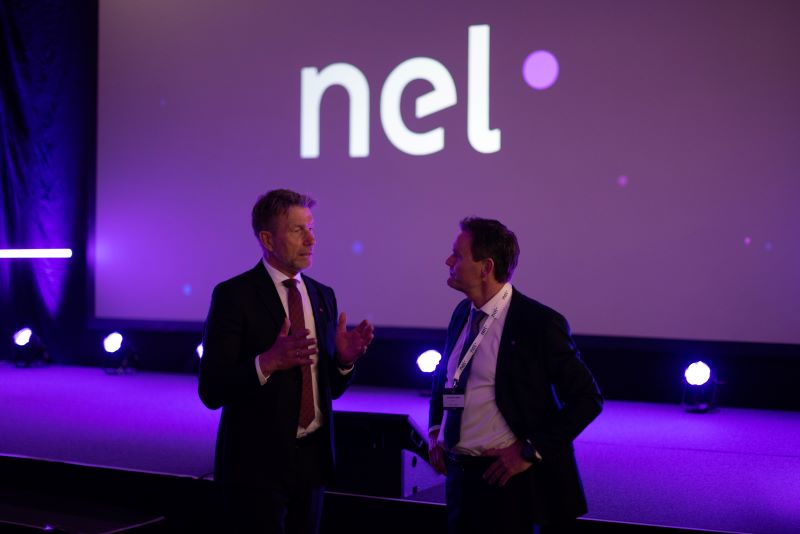Heroes in the field
World’s first fully automated electrolyser facility opens
On 21 April Nel officially opened the world’s first fully automated electrolyser manufacturing facility. The facility, which is located at Herøya in Norway, was inaugurated by the Norwegian Minister of Petroleum and Energy, Terje Lien Aasland.

World’s first fully automated electrolyser facility opens
On 21 April Nel officially opened the world’s first fully automated electrolyser manufacturing facility. The facility, which is located at Herøya in Norway, was inaugurated by the Norwegian Minister of Petroleum and Energy, Terje Lien Aasland.
“Nel’s new factory at Herøya is a step in the right direction towards a future without emissions. In a growing hydrogen market, even more electrolysers are needed, and it will be a sign of quality that the electrolysers are marked “Made in Norway”, the Norwegian Minister said.
Fully “green” renewable hydrogen currently makes up just one percent of the world’s total industrial and mobility hydrogen consumption. But Nel’s pioneering new plant at Herøya is at the forefront of the race to turn one into one hundred. And falling cost of renewable hydrogen will unlock new application areas where it is the best or only option to decarbonise.
The secret is scale-up and automation, which is lowering the unit cost of electrolyser production like never before, and Nel is on track to make renewable hydrogen as cheap or cheaper to produce than hydrogen made from fossil fuels.
Nel announced earlier a target of producing renewable hydrogen at USD 1.5 dollar per kilo by 2025. To achieve this, CAPEX must be reduced to a quarter of today’s level.
“Half of the savings we need to make will come from scale up and increased efficiency in production. The rest will come from the economy of scale, and from effective industrial partnerships”, said Jon André Løkke, Nel’s CEO.
“At Herøya we are producing the best alkaline electrolysers in the world. The next step would be to industrialize our PEM technology production line in a similar way”, says Løkke, adding that Nel is also investing a lot of capital in the development of projects as large as 800 MW and beyond based on 20, 100, 200 MW building blocks.
“Our large-scale concepts allow us to optimize the overall CAPEX and realize synergies to reduce cost”, said Løkke.
As the global leader in electrolyser technologies, Nel has just delivered the largest electrolyser plant in Europe, Iberdrola’s 20 MW facility in Puertollano, which was recently opened by the Spanish king and will be producing green ammonia for the fertilizer industry.
The pioneering new plant at Herøya currently has 500 MW of production capacity. With further investment, this figure can rise to 2 GW, a sizeable portion of the 10 GW of capacity Nel is targeting to reach by 2025. This represents an important contribution to help meet the recent pledge by European electrolyser manufacturers to have in place a combined annual electrolyser manufacturing capacity in Europe of 17.5 GW by 2025 .
Electrolysis with renewable electricity is one of the key industries of the future. Building a strong European electrolyser manufacturing sector is key to meet the REPowerEU ambition for Europe to consume 20 million tons (mt) of renewable hydrogen by 2030, with 10mt being produced domestically. This is also a unique opportunity to trigger massive private investments, stimulate a green recovery, long-term competitiveness, innovation in Europe, and placing the European renewable hydrogen value chain at the core of Europe’s growth and jobs strategy for the generations to come.

Norwegian Minister of Petroleum and Energy, Terje Lien Aasland officially opening the world’s first fully automated electrolyser manufacturing facility in Herøya with Jon André Løkke, Nel’s CEO.
Image credit: Nel Hydrogen


